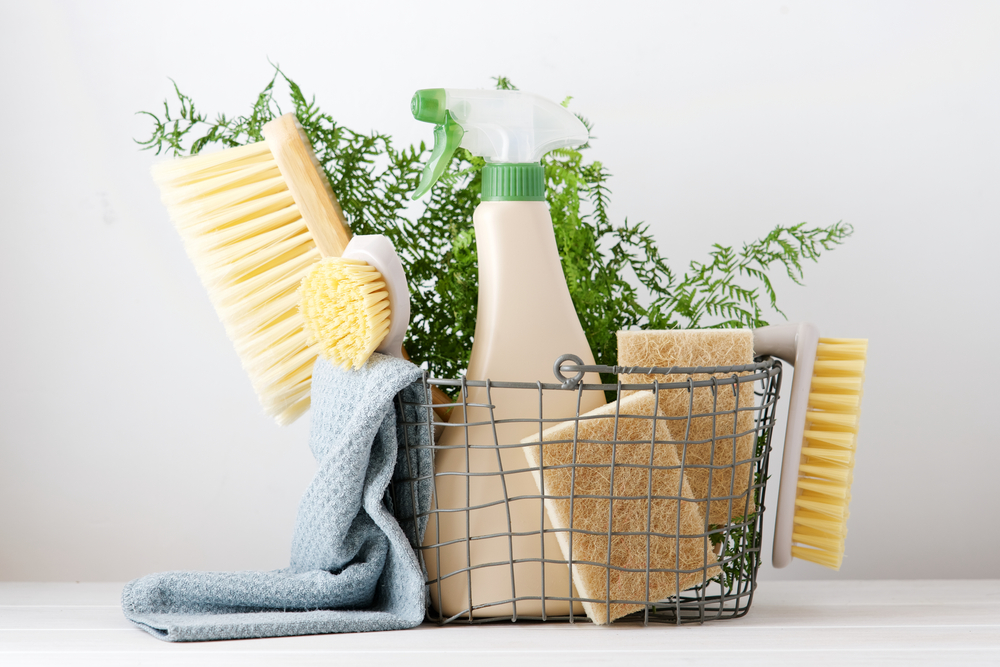Natural Cleaning Alternatives: A Fact-Based Guide to Environmentally Friendly Cleaning.
Maintaining a clean and healthy living environment is a priority for many individuals, but the array of commercial cleaning products available on the market often come with a host of chemical ingredients that may raise concerns. Fortunately, there are effective natural alternatives that can keep your home spotless without compromising on safety. In this blog, we will explore some tried-and-true natural cleaning alternatives, backed by facts, to help you make informed choices for a cleaner and greener home.
Vinegar
Fact
White vinegar is a versatile and affordable natural cleaner with antibacterial properties. It can effectively cut through grease, dissolve mineral deposits, and eliminate odours.
Usage
Mix equal parts water and white vinegar for an all-purpose cleaner.
Use vinegar to clean glass surfaces, countertops, and bathroom fixtures.
Baking Soda
Fact
Baking soda, or sodium bicarbonate, is an excellent abrasive cleaner and deodorizer. It is mildly alkaline and can help neutralize odours.
Usage
Sprinkle baking soda on carpets before vacuuming to freshen them. You should leave the baking soda on for at least 30 minutes, but overnight is best.
Create a paste with water for scrubbing surfaces like sinks, tubs, and stovetops.
Lemon
Fact
Lemons contain citric acid, which has natural antibacterial and antiseptic properties. They also leave a fresh, citrus scent.
Usage
Use lemon juice to dissolve soap scum and hard water stains.
Cut a lemon in half and use it to scrub cutting boards or deodorize the garbage disposal.
Castile Soap
Fact
Castile soap is a vegetable-based soap that is gentle on the environment and effective for various cleaning tasks.
Usage
Dilute castile soap with water for a natural floor cleaner.
Mix with water and essential oils for a homemade dish soap.
Essential Oils
Fact
Many essential oils, such as tea tree oil, lavender oil, and eucalyptus oil, possess antibacterial and antifungal properties. They can add a pleasant fragrance to your cleaning products.
Usage
Add a few drops of essential oil to your homemade cleaners for a refreshing scent.
Use tea tree oil for its natural disinfectant properties in bathroom cleaning solutions.
Rubbish Bins
Separate rubbish into appropriate recycling categories. Have at least two bins in the kitchen.
Only the general waste bin will have potential odour problems. You can all but remove this by putting baking soda, Citrus peels, Coffee grounds, Newspaper, Dryer sheets, or activated charcoal at the base of the bin. Add some essential oils if you wish.
Wipe down the inside of the bin with diluted vinegar (50% water) after emptying, and let the surface dry before you replace the bag.
Natural cleaning alternatives offer a safe and eco-friendly way to maintain a pristine home environment. By incorporating these fact-based solutions into your cleaning routine, you can reduce your exposure to harmful chemicals while still achieving effective and satisfying results. Embrace the power of nature to keep your home clean, healthy, and environmentally conscious.
Information Disclaimer
The content of this article is meant for informational purposes only and should not be considered a source of professional advice, recommendations, or endorsements. It is not a substitute for seeking expert guidance or making well-informed decisions based on individual circumstances. Although we strive for accuracy and reliability, we cannot guarantee the information's completeness or suitability for all situations. Readers are urged to verify facts, consult experts, and consider their own context before taking actions or decisions based on this content. No warranties, explicit or implied, are provided regarding the accuracy, timeliness, or completeness of the presented information. Relying on this information is at the reader's own discretion and risk. We encourage readers to consult relevant professionals or experts for advice tailored to their specific needs. Neither the author, publisher, nor any affiliated parties will be held responsible for errors, omissions, or damages resulting from the use or reliance on the information in this article.

